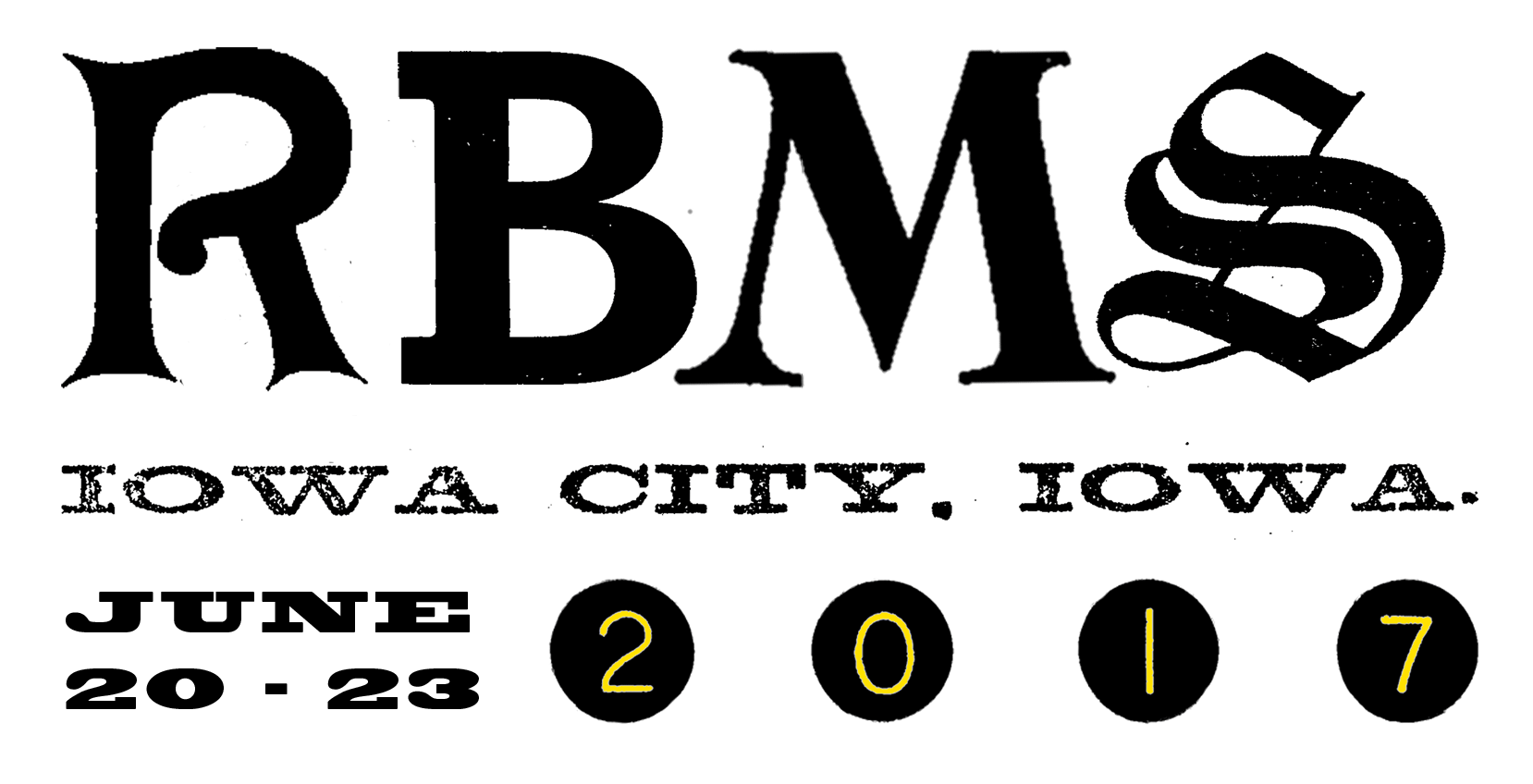Plenary 3: Memory
In exploring possible plenary themes for the RBMS 2017 Conference devoted to “The Stories We Tell,” the Conference Program Planning Committee determined that the three interconnected elements of narrative, representation, and memory would be both descriptive and evocative for speakers and attendees. In addition to highlighting the flow of the conference, these themes have also served to inspire the organizers and speakers of the numerous, wide-ranging break out sessions including panels, participatory sessions, poster sessions, and the booksellers’ showcase.
For the closing plenary devoted to memory, we will build on programming from throughout the conference to further explore ways in which narrative, representation, and memory intersect and interact, shaping what we as individuals and communities choose to remember. How diverse communities are able to document and represent themselves, and how these communities are presented and misrepresented by others, has engaged our closing plenary speakers in investigations of primary sources ranging in place and time from the colonial Andes to the twenty-first century World Wide Web.
Dr. Frank Salomon is the John V. Murra Professor Emeritus of Anthropology at the University of Wisconsin-Madison and currently Adjunct Professor of Anthropology at the University of Iowa. An ethnographer and ethnohistorian of the Andes, he is the author of Native Lords of Quito in the Age of the Incas: The Political Economy of North-Andean Chiefdoms (1986); The Huarochirí Manuscript: A Testament of Ancient and Colonial Andean Religion (with George L. Urioste, 1991); Los Yumbos, Niguas, y Tsátchila o “Colorados” durante la colonia Española: etnohistoria del Noroccidente de Pichincha, Ecuador (1997); The Cambridge History of the Native Peoples of the Americas – South America (with Stuart B. Schwartz, 1999); The Cord Keepers: Khipus and Cultural Life in a Peruvian Village (2004); La revisita de Sisicaya, 1588: Huarochirí veinte años antes de “Dioses y hombres” (with Jane Feltham and Sue Grisboll, 2010); and The Lettered Mountain: A Peruvian Village’s Way with Writing (with Mercedes Niño-Murcia, 2011). A past president of the American Society for Ethnohistory, he has held Guggenheim Foundation, School for Advanced Research (SAR), and National Science Foundation (NSF) fellowships. His current book project is entitled The High Places: Ethnography at an Andean Mountain Altar.
Dr. Safiya Umoja Noble is an Assistant Professor in the Department of Information Studies in the Graduate School of Education and Information Studies at UCLA. She also holds appointments in the Departments of African American Studies, Gender Studies, and Education. Her research on the design and use of applications on the Internet is situated at the intersection of race, gender, culture, and technology. Her interests include the political economy of the Internet, critical perspectives on Black women’s representation in technology systems, and the role of digital technology in public life.
She serves as an Associate Editor for the Journal of Critical Library and Information Studies and is the co-editor of two books: Emotions, Technology and Design (with Sharon Y. Tettegah, 2016) and The Intersectional Internet: Race, Sex, Class, and Culture Online (with Brendesha M. Tynes, 2016). She is currently working on a monograph regarding racist and sexist algorithmic bias in search engines such as Google (forthcoming, NYU Press). Her brief introduction to “Challenging the Algorithms of Oppression,” delivered at the 2016 Personal Democracy Forum, can be viewed here.
In addition to addressing the implications of memory for our professional lives and institutions, Salomon and Noble will challenge us to examine our assumptions regarding the relationships between data, communication, and communities. In the process, we hope this closing plenary will provide numerous opportunities for inspiration and reflection.
–Daniel J. Slive
Head of Special Collections
Bridwell Library
Perkins School of Theology
Southern Methodist University


